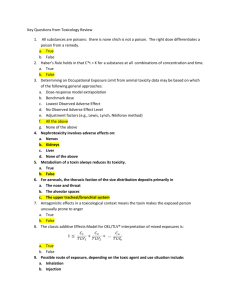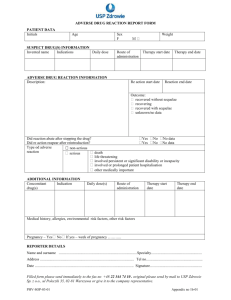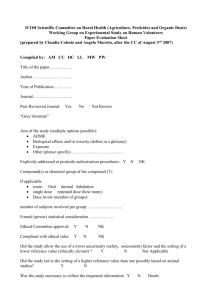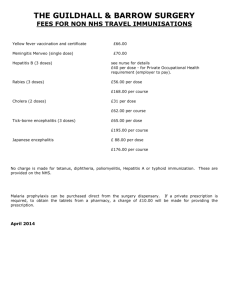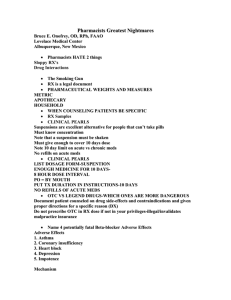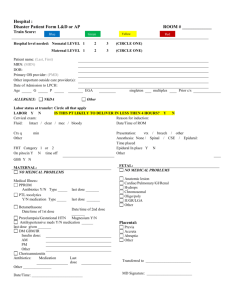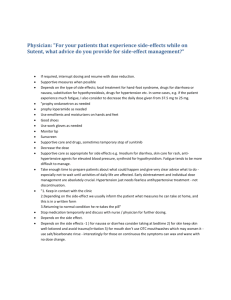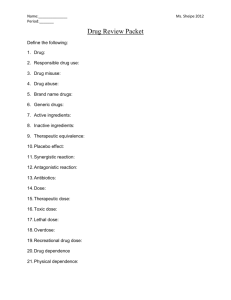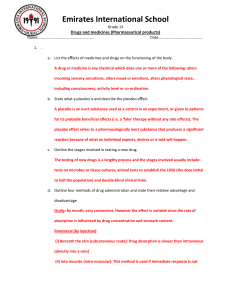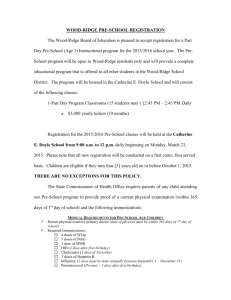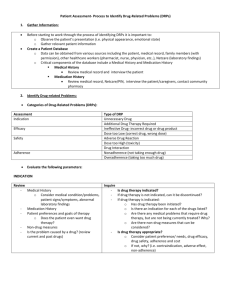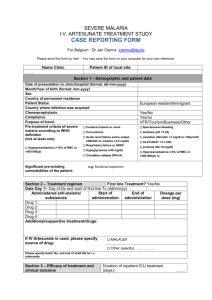1. Psychological dependence
advertisement
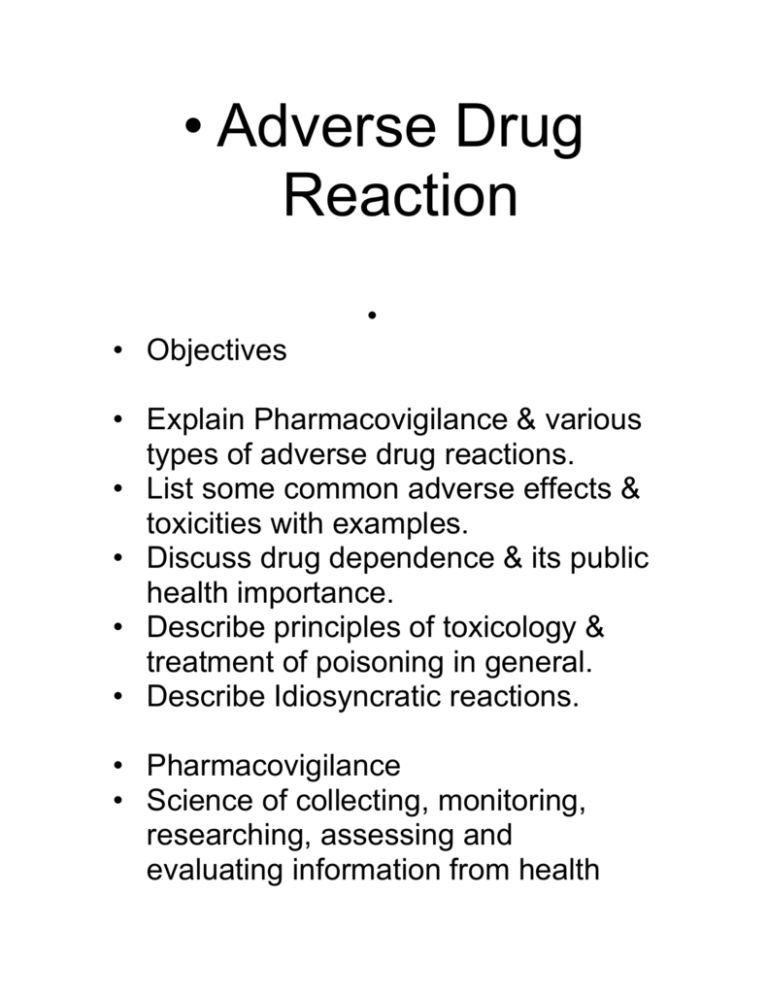
• Adverse Drug Reaction • • Objectives • Explain Pharmacovigilance & various types of adverse drug reactions. • List some common adverse effects & toxicities with examples. • Discuss drug dependence & its public health importance. • Describe principles of toxicology & treatment of poisoning in general. • Describe Idiosyncratic reactions. • Pharmacovigilance • Science of collecting, monitoring, researching, assessing and evaluating information from health care providers and patients on adverse effects of medications • Adverse drug reaction (ADR) (WHO) • Response to a drug that is noxious & unintended • Occurs at doses normally used in man • For prophylaxis, diagnosis or therapy of disease or for modification of physiological functions • Should require an intervention Warning, Dose adjustment, Stoppage of therapy, Intervention for treatment of ADRs • Side Effects • Undesirable effects which may accompany beneficial effects of drug • Not so harmful as to stop drug • e.g. Dryness of mouth with atropine Tachycardia with ephedrine • Toxicity • Exaggeration of desired therapeutic effect at higher doses • Dose related Coma due to barbiturates Delirium, hyperpyrexia in atropine overdose • Adverse drug reaction: Classification • Types Type A: Augmented Type B: Bizarre Type C: Chronic Type D: Delayed Type E: End of dose Type F: Failure of therapy • Type A: Augmented • Dose related, Predictable & expected • Less mortality, High frequency • Incidence more in elderly, infants, renal & hepatic dysfunction Gastritis with NSAIDs Tachyarrhythmias with adrenaline • Type B: Bizarre • Not expected from known pharmacological action of drug in usual doses • Unpredictable, Based on patient rather than drug • Occur on 1st exposure, High mortality, Less frequency Hemolysis in G-6-PD deficient individuals: Primaquine, Dapsone Prolonged apnea with SCh • • • • • Type C: Chronic Dose & time related Uncommon Related to cumulative dose Drug given for prolonged period of time • e.g. SLE with Hydralazine • • • • • • • • • • • • • • HPA suppression with Corticosteroids Type D: Delayed Time related Uncommon Apparent sometimes after stoppage of drug e.g. Vaginal adenocarcinoma with DES Tardive dyskinesia with CPZ Type E: End of Dose Uncommon Occur after withdrawal of therapy e.g. Acute adrenal insufficiency on stoppage of corticosteroids Type F: Failure of therapy Common Dose related Often caused by drug interactions e.g. Oral contraceptive failure with Rifampicin • Drug Dependence • Drug dependence is a state in which use of drugs for personal satisfaction is accorded a higher priority than other basic needs 1. Psychological dependence • When individual believes that optimal state of wellbeing is achieved only through actions of drug • May start as liking for drug effects & may progress to compulsive drug use in some individuals • E.g: opioids, cocaine 2. Physical dependence • An altered physiological state • Produced by repeated administration of a drug • Need for presence of drug to maintain physiological equilibrium • Discontinuation of drug results in a characteristic withdrawal (abstinence) syndrome • E.g : Alcohol 3. Drug abuse • Refers to use of a drug by self medication • Not approved by medical and social patterns • Coccaine 4.Drug addiction • Pattern of compulsive drug use characterized by overwhelming involvement with the use of a drug • E.g. Amphetamines, cocaine, cannabis, Toxicology • Definitions • Toxicology Science deals with poison with reference to Source, properties, mode of action Symptoms, lethal dose, treatment • Poison Substance which when administered, inhaled/ ingested, capable of acting deleteriously on human body • Initial management of toxicity • • • • Airway Breathing Circulation History • Physical Examination Vital signs Eyes Mouth Skin Abdomen Nervous system • Initial management of toxicity • Laboratory reports Arterial blood gases Electrolytes Renal function test Echocardiogram • Decontamination • Skin • Gastrointestinal tract Emesis Gastric lavage Activated charcoal • Specific Antidote • Idiosyncratic Reactions • Genetically determined abnormal response of a drug • Unique feature of individual, not found in majority of subjects. • Eg. • Barbiturates causes excitement and mental confusion in some subjects.
